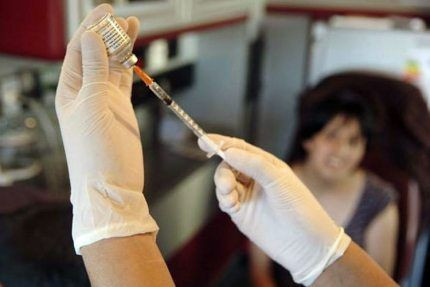Government Report Takes Aim To Reduce Counterfeit Medications

There is now a call for a national tracking system for medications so that fake ones don't enter the market place.
Calls to action are happening one day after the FDA warned doctors that Avastin, a potent cancer killing biologic, was found in some cases to be counterfeit. This is the third instance this year of a fake batch of the medication, which did not have any of the active ingredient in it at all.
The report, issued by the Institute of Medicine said that this was a worldwide problem and especially dangerous in developing countries where drug-resistant tuberculosis was being exasperated by medications that are watered down.
"There can be nothing worse than for a patient to take a medication that either doesn't work or poisons the patient," said Lawrence O. Gostin, a professor of health law at Georgetown University who led the Institute of Medicine committee.
In certain cases, the packaging was so similar to the real medication, that FDA testers could not tell the difference. Images of the fake packaging can be found here.
They propose some sort of barcode or electronic tracking system to confirm that medications are indeed real.
The description of the report states: "Falsified and substandard medicines provide little protection from disease and, worse, can expose consumers to major harm. Bad drugs pose potential threats around the world, but the nature of the risk varies by country, with higher risk in countries with minimal or non-existent regulatory oversight. While developed countries are not immune, - negligent production at a Massachusetts compounding pharmacy killed 44 people from September 2012 to January 2013 - the vast majority of problems occur in developing countries where underpowered and unsafe medicines affect millions."
The report from the institute of Medicine can be found here



























